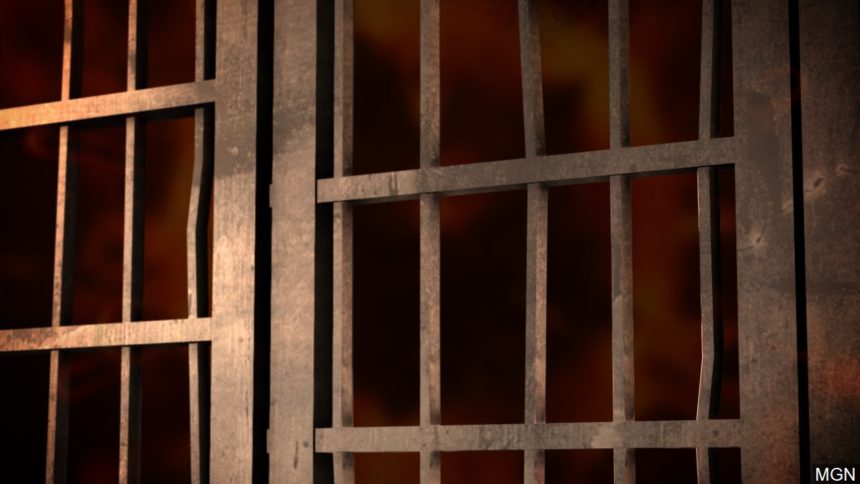Arizona prisons take more steps to guard against coronavirus

PHOENIX (AP) — Inmates in Arizona’s prisons are being offered free soap and are no longer routinely being moved between prison complexes in the latest efforts to guard against the risks of the coronavirus.
The Arizona Department of Corrections, Rehabilitation and Reentry also announced a requirement Wednesday morning that all employees entering prisons undergo a check for infectious disease symptoms.
“In managing this situation, our two top priorities are safety and public health as we work to mitigate the potential spread of COVID-19 within our prisons,” Corrections Director David Shinn said.
The agency had previously suspended visitation at state prisons and a $4 co-payment on inmates who seek medical help for cold and flu symptoms.
The announcements on Wednesday came after lawyers representing inmates criticized the state for not having an adequate plan to guard against the risks of COVID-19.
In asking a federal court to force the state to develop an adequate plan, the attorneys said they saw medically fragile inmates crowded in dirty and unventilated dorms and tents during a visit last week at the Arizona State Prison Complex in Florence.
There are now 30 coronavirus cases reported in Arizona after Coconino County’s first presumptive positive case was announced Wednesday plus two people at Luke Air Force Base in Glendale.
No cases have been reported in state prisons.
For most people, COVID-19 causes only mild or moderate symptoms, such as fever and cough. For some, especially older adults and people with existing health problems, it can cause more severe illness, including pneumonia.
The vast majority of people recover from the new virus. According to the World Health Organization, people with mild illness recover in about two weeks, while those with more severe illness may take three to six weeks to recover.
Lawyers for the inmates have said their clients haven’t adequately been instructed on how to guard against the virus and that the health care system within the prisons suffers from a shortage of workers and limited infirmary space.
They said the prisoners weren’t given disinfectants to scrub their cells or bed space and instead were told to use soap such cleaning. Prisoners normally have to buy soap but it’s now being offered free to those who request it.
“We hope that they are communicating this throughout the prisons to all the incarcerated people so they are aware of the changes,” said Corene Kendrick, an attorney representing the inmates.
Wellington Coppess, an inmate in the Arizona State Prison Complex in Tucson who has hepatitis C, expressed skepticism in an email Wednesday about the corrections department’s claim that it has been proactive in guarding against COVID-19. Coppess sent the email to his wife, who forwarded it to an attorney. The lawyer released the email to The Associated Press.
Coppess said inmates are worried about the pandemic because of the poor medical conditions inside prison. He said the lack of a working dishwasher in the dinning hall where he eats is fueling those concerns.
“Us inmates have been forced to eat with trays, spoons, and cups that are just being dipped into warm water, and put back out on the line for the next inmate, because there is no dishwasher,” Coppess wrote.
Gov. Doug Ducey said Wednesday the fight against COVID-19 “will be with us for some time.”
While other governors have issued widespread orders to avoid public places, Ducey’s public health agency says only that it “strongly recommends” that restaurants “discourage” dine-in service in Maricopa, Pima and Pinal counties.
Ducey defended his incremental approach, saying he’s following the recommendations of his public health officials.
Meanwhile Wednesday, Tempe, Scottsdale and Buckeye followed other cities and declared local states of emergency in response to the coronavirus.
But it’s unclear if those cities will close bars and order restaurants to offer only takeout, delivery and drive-thru services like Phoenix, Tucson and Flagstaff. Coconino County plans to close restaurants and other businesses from Thursday to April 1.
Mesa, Gilbert and El Mirage have declared local states of emergencies but haven’t shut down businesses so far.
Several tribes in the Phoenix and Tucson metro areas announced Wednesday night that they will temporarily suspend their gaming and resort operations to assist public health efforts to slow the virus. A third member of the Navajo Nation has tested positive for the COVID-19 coronavirus, officials said in a statement Wednesday. The 62-year-old man is hospitalized in Phoenix.
In northern Arizona, Grand Canyon National Park said restaurants within the park will be closed Thursday until further notice although some of the dining facilities may offer takeout options.
Park officials said campgrounds, viewpoints and hiking trails remain open.
The Roman Catholic Diocese of Phoenix has suspended all Masses.